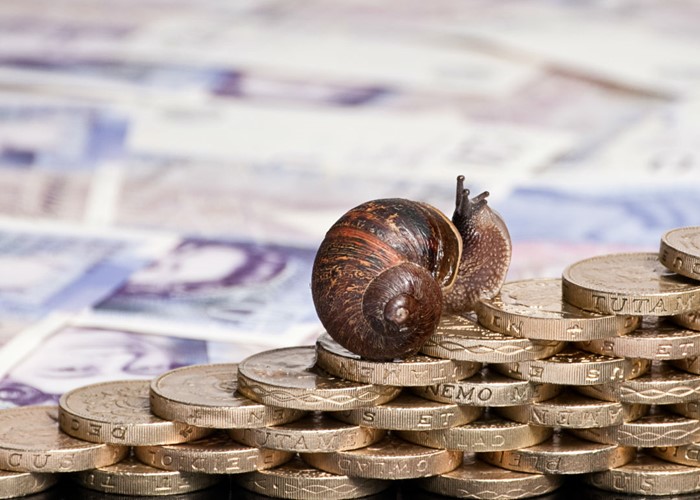How To Turn £100 Into £788

When it comes to investing, the early birds earn the greatest returns. With patience, £100 can grow into almost £800 over time!
As veteran investors know well, how much you put in to an investment is usually less important than how early you start. Hence, if your goal is superior returns, it's best to be an early bird!
This is particularly true when it comes to saving for retirement, because the earlier you start contributing to a pension, the larger your pot will become and the easier your life will be. This is nicely illustrated by a report from leading investment group Fidelity International into long-term investment returns.
Let's assume that you're retiring today, having contributed to a pension over the periods set out in the table below. Your imaginary contribution was invested 35% in UK shares, 35% in overseas shares and 30% in bonds (IOUs issued by companies and government).
Here's what £1 would be worth today in real terms, after accounting for inflation (rising prices):
|
When contribution was made: |
40 years ago |
35 years ago |
30 years ago |
25 years ago |
20 years ago |
15 years ago |
10 years ago |
5 years ago |
|---|---|---|---|---|---|---|---|---|
|
£1 has grown to be worth:* |
£7.88 |
£5.44 |
£4.03 |
£3.37 |
£2.83 |
£2.23 |
£1.73 |
£1.30 |
* based on average historical real returns over rolling 5-, 10-, 15-, 20-, 25-, 30-, 35- and 40-year periods.
Thus, as you can see, £1 invested forty years ago has grown to be worth £7.88, thanks to the power of long-term compounding. However, £1 invested twenty years ago would be worth just £2.83 today, thanks to losing out on twenty years of extra growth.
This plainly demonstrates the high cost of delaying your pension contributions until you're older and, in theory, more able to afford them. Quite simply, £1 put away forty years ago is roughly equivalent to £6 invested five years ago! So, because the value of your 'retirement pound' falls rapidly with age, it makes sense to start saving for retirement as early as you can -- ideally, when you start your first real job.
Alas, Fidelity's retirement research revealed that almost three-quarters (73%) of workers without savings do not intend to start saving for retirement before they reach the age of 39. Frankly, this is a recipe for disaster. Indeed, without the benefits of long-term financial planning and growth, these people are sleepwalking into a retirement filled with baked beans and day centres, instead of long lunches and cruises!
Then again, Fidelity's research did throw up some good news, because it revealed that nearly two-thirds (62%) of today's 18- to 34-year-old workers started saving for retirement before their 25th birthdays. This is much better than the record for previous generations: more than seven in ten (72%) workers aged 55+ failed to start saving for retirement before they turned 25, so there is some hope for younger generations!
So, start saving for retirement as early as you can; otherwise, it will cost you a lot more in the long run. These days, I have to shovel money into my pension in order to fill a nine-year gap in my pension CV. If only I'd bit the bullet back then, I'd have a lot more spare cash today!
More: Use lovemoney to compare investments and compare savings accounts!
Comments
Be the first to comment
Do you want to comment on this article? You need to be signed in for this feature